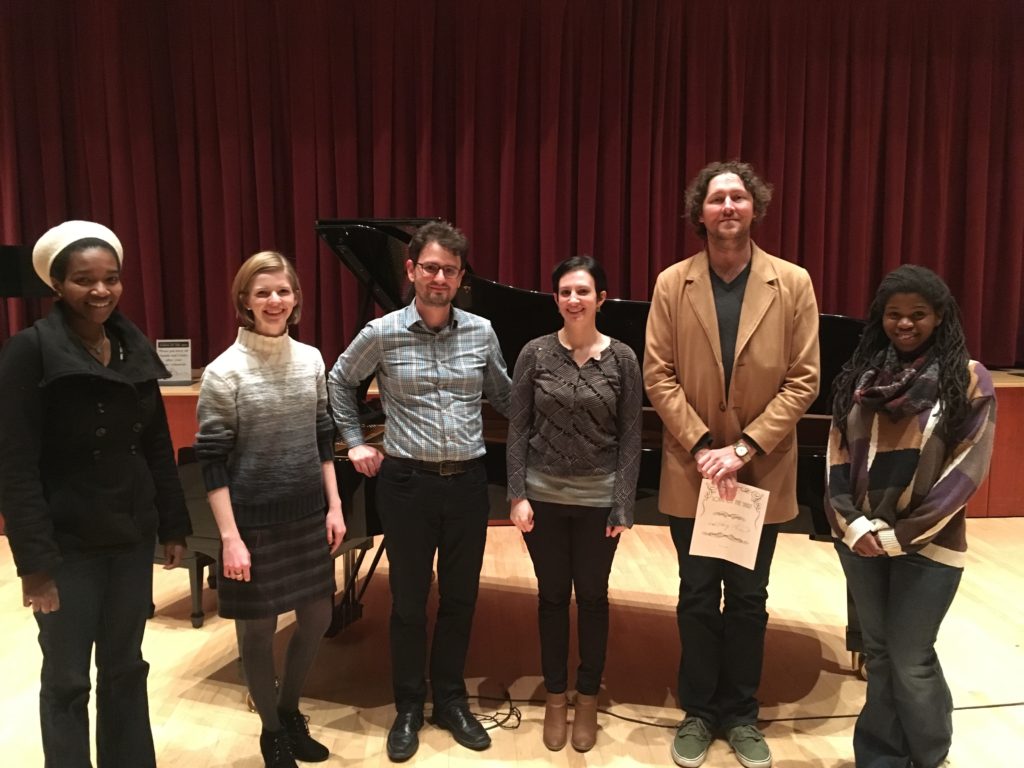I wrote here about the recording session we had in February with the Attacca String Quartet. We had another this past month, this time with soprano Lindsay Kesselman and pianist Daniel Pesca collaborating on four student songs:
- Kyrie Antoinette: Old News
- Derek Wesley Arnold: The Song of the Shirt
- Alicia Bachorik: How Do I Love Thee?
- Jessica Buford: They Were Miners
Jessica’s song references her upbringing in West Virginia, where her grandfather gave a lifetime to the mines in order to support his family. The lyrics, which she wrote, capture his plight in brief, suggestive lines:
Three long months laid off
bread-stretched supper
a scary cough
As the piece progresses, the vocal line becomes increasingly choked off until, in the final phrases, audible inhalations — gasps – create a powerful image of a miner’s broken-down lungs. The piano part is appropriately sparse and dark, and Pesca made the most of it, providing just the right balance with the low tessitura of the vocal line.
Alicia Bachorik’s pair of love songs, Anticipation and Action, inhabit a very different realm. The poems, by Marion Strobel and Helen Hoyt, trace complementary scenarios: Anticipation is about unrequited (but ever-hopeful) love; Action presents a quiet scene of domestic joy, that of awaking a lover with kisses. Each song has a natural — though complex — flow, with constantly shifting metrical groupings that reflect the intricate rhythms of the text. Lindsay Kesselman not only nailed the asymmetrical rhythms, she made them sound effortless and beautiful.
The Song of the Shirt is an 1840 poem by Thomas Hood decrying the wretched conditions of England’s working poor. Derek Arnold brings their plight to the present in his setting, with crunchy harmonies and a tightly pensive vocal line. The word “stitch” is whispered repeatedly, capturing the sharp drudgery of the labor.
Kyrie Antoinette’s Old News, with her own lyrics, was an unusual blend: I think of it as “Blues Meets Zen”:
Don’t be open
Don’t be closed
Sow all the seeds
But don’t let them grow
In response to the composer’s request to make the vocals “breathy,” Lindsay adopted a more intimate vocal style that took advantage of the microphone’s ability to project sound. The result was like a confidential conversation, or an interior monologue.
When they finished recording, Kesselman and Pesca gathered the composers and other attendees around to share their thoughts about composition, interpretation, and the new-music community. Their insights were upbeat but grounded in reality. “The new music community is a generous one,” said Lindsay. “A lot of people sharing a vision and working together to make it happen.”

